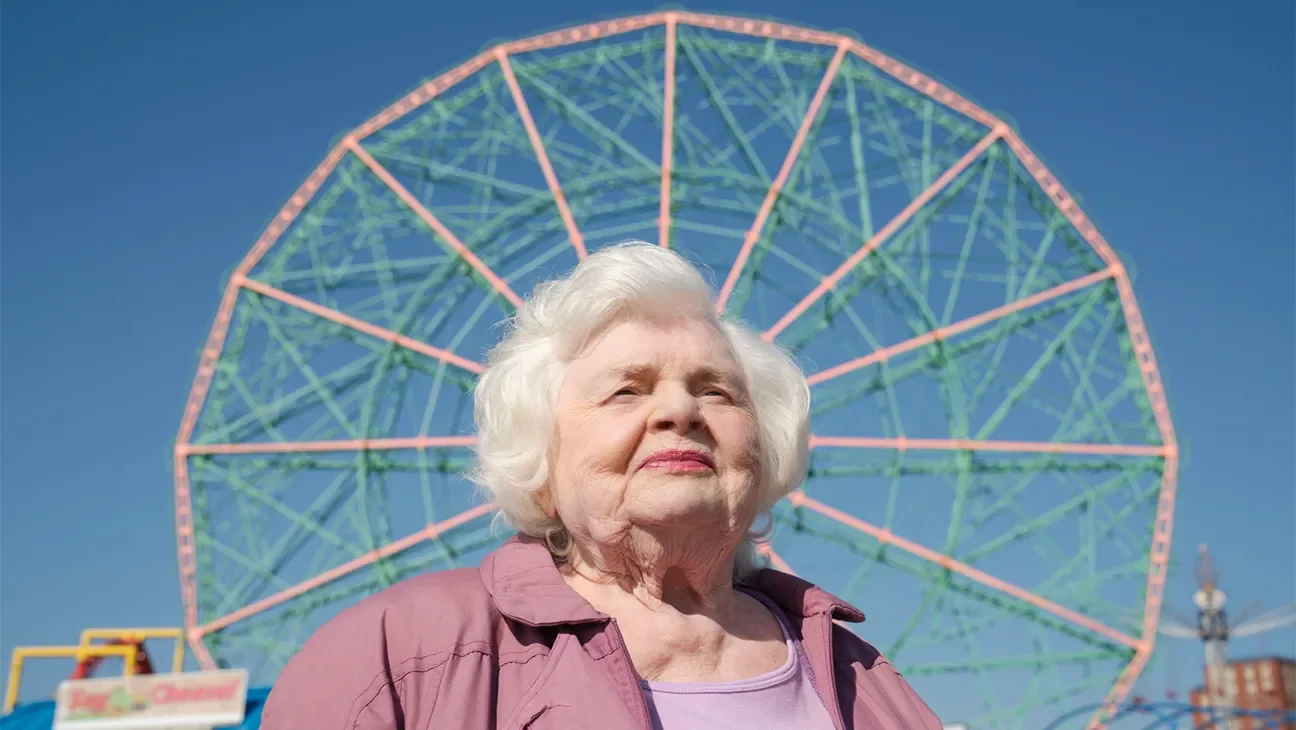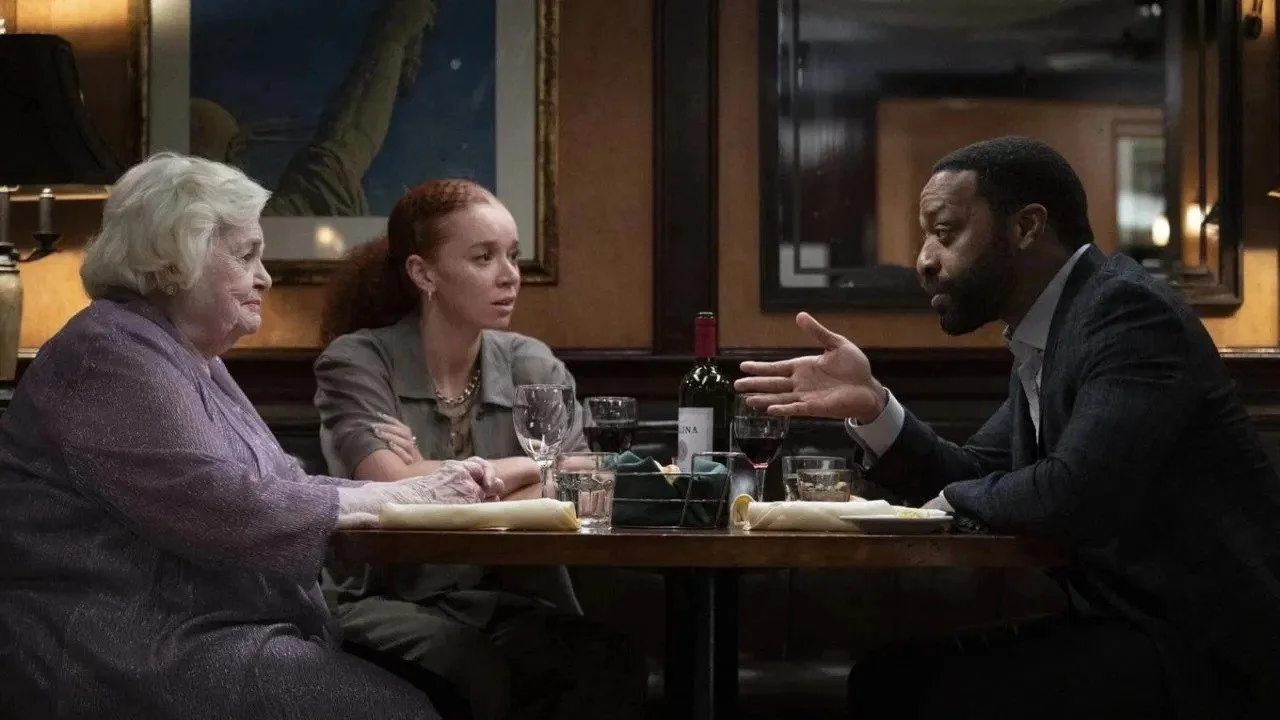‘Eleanor the Great’ Review: Scarlett Johansson’s Misguided Directorial Debut
While Eleanor the Great is elevated by a legendary turn from June Squibb as the titular character, the film’s handling of several subjects leaves much to be desired.
There’s one thing no one will fault while watching Scarlett Johansson’s feature directorial debut, Eleanor the Great: June Squibb is a national treasure. In the movie, she efficiently captures the effervescence and quick wit of the film’s titular character, Eleanor Morgenstein, with such contagious energy that it’s hard not to fall in love with her. In fact, she’s the primary reason you keep watching the film. Her sense of comedic timing is pitch-perfect, particularly during a well-mounted sight gag that made the (limited) crowd go in stitches.
However, it’s in Eleanor’s most vulnerable moments, where Johansson and writer Tory Kamen sit with the character as she still tries to make sense of the short time she still has on this planet in the wake of her best friend Bessie’s (Rita Zohar) passing, that Squibb excels the most. You fully warm up to her personality, warts and all, because her heart is much bigger than ours. Her performance possesses the same amount of compassion and indelible energy that made us all fall in love with Squibb, who became a sensation at a particularly advanced age with her Oscar-nominated turn in Alexander Payne’s Nebraska. Twelve years later, she is still enjoying the adulation and success of a late-stage performer at the tender – and young – age of 95.
Last year’s Thelma was a massive hit for the actress, and now Eleanor the Great is poised to make her once again the talk of the Awards season town as it begins to ramp up. That will also be the only thing moviegoers will discuss when coming out of Johansson’s profoundly misguided debut, as it treads on the treacherous waters of making light of a subject that can’t be trivialized – or joked about – in any way. Only Roberto Benigni managed to use the backdrop of World War II and the Holocaust as a story of resilience and survival through comedy, in Life is Beautiful, without ever exploiting the setting or making light of what happened.
The reason why comedies on the Holocaust don’t work is simple: the event is no laughing matter. It brings about many difficult emotions for its remaining survivors – and family members – who will carry these scars for the rest of their lives. So color me shocked (really, I read nothing about the movie, other than knowing Johansson was making her first film, starring June Squibb, which had a premiere at Cannes) when the plot of the movie begins to unravel and Eleanor the Great starts to do things I never thought to see in the year of our lord 2025.
After Bessie passes away, Eleanor decides to move back to New York to be with her daughter, Lisa (Jessica Hecht), and grandson Max (Will Price), but the two are far too busy to tend to her needs. Lisa encourages her to attend the local Jewish Community Center (JCC) to make friends, and it is here that Eleanor accidentally stumbles upon a support group for Holocaust survivors. Instead of coming clean and admitting that she is in the wrong room, Eleanor begins to recount Bessie’s life, as if it were her story of survival. That’s right, we have “Dear Evan Hansen, but on Holocaust survivors,” and it’s as thoughtless as you think reading a statement like this is.
And whaddaya know? In the room is aspiring journalist Nina Davis (Erin Kellyman), who wants to profile Eleanor after hearing her alleged story of surviving the Holocaust. Nina is also coping with the tragic loss of her mother, while her father, renowned television journalist Roger Davis (Chiwetel Ejiofor), ignores his daughter’s needs at a time when she needs affection the most and prefers to be back at work. Instead of coming clean, Eleanor continues to lie to Nina and befriends her, which leads to a concluding setpiece that’s as eye-rolling as anything featured in Dear Evan Hansen, no matter how sincere Squibb’s turn is. Again, she is the main reason why we keep watching, because Eleanor is such an attachable character on her own.
Everyone else does fine work, too, but Squibb frequently steals the spotlight away from the rest of the cast. After all, it’s her show, and possibly the last time she’ll do something at this scale. That being said, Johansson possesses no sense of aesthetics as a filmmaker, and her direction of Eleanor’s story feels much more in line with a television film than a theatrically-released drama, despite snagging cinematographer Hélène Louvart, who previously collaborated with the likes of Agnès Varda, Alice Rohrwacher, Maggie Gyllenhaal, Christophe Honoré, and Wim Wenders.
One could think that, with all of those talents she worked with, Louvart’s photography would stick out, but there’s no image in Eleanor the Great that holds our attention. Johansson would rather stay in clumsily framed zooms of Elearnor’s face than have the camera respond to the litany of emotions she feels, as someone still grappling with the loss of her best friend and coping with that grief by telling her story. It continuously treads in some territories that didn’t sit right with this fellow critic, especially as it tries to reach an unearned button-pushing conclusion that justifies her lies about being a Holocaust survivor as ones tied to the universal feeling of grief.
There is some truth to Ejiofor’s well-delivered monologue about human beings refusing proximity and human connection at a time when they need it the most, and it rings truer as someone who recently lost a close family member and needed to be with them during what was a challenging past few months for me and everyone else. Maybe it was the intended goal of using the framework of the Holocaust as a way to discuss grief. Yet, it still doesn’t entirely gel with me, especially when the movie sometimes highlights the comedic nature of her situation and stretches the premise thin to get to a dramatic turning point, when, again, real lives were lost and permanently altered by this genocide.
With all that said and done, it’s not as ill-conceived as Dear Evan Hansen, because at least its heart is in the right place, and Kamen’s script feels like it’s actively saying something about grappling with grief rather than merely gesturing about it. Johansson seems willing to spark a discussion and encourage audiences to talk about their feelings, especially when they are at their lowest. Perhaps a better framing device would’ve helped convey the message more effectively, because we lose sight of what matters most, as the subject matter is trivialized in ways that should never be treated on film this way.
There’s a better movie that discusses Eleanor’s reckoning as she grapples with the remaining years she has, while trying to carry Bessie’s legacy to as many people as possible by immediately coming clean and sharing her story of survival, not pretending it’s her own. It would’ve been fairly inspirational and life-affirming, despite the simplicity of the plot. Sometimes, movies don’t need to be anything more than that, and that’s perfectly fine! Sadly, that road was not taken, and now we have a pretty middling debut for what I hope won’t be the last time we will see Johansson behind the camera, provided she flexes her filmmaking muscles a bit and finds a better screenplay.



